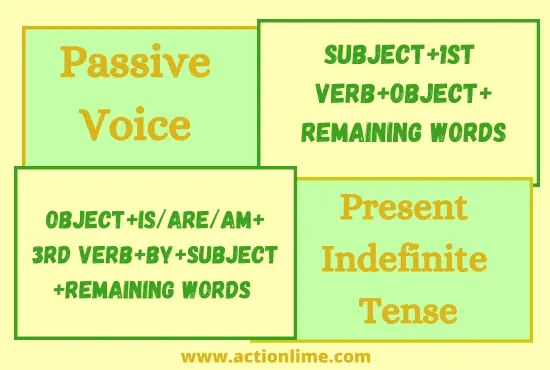Adverbs of Reason| Definition, Use, Examples
Adverbs of Reason are used to express the Reason behind an action or statement. It means that Adverbs of Reason are used to answer the question “why something happens”. Following are some Adverbs of Reason that are used to tell the reason behind an action or statement.
- Therefore
- Thus
- Hence
- Because
- Consequently
- So
- As a result
- Since
- Accordingly
- So that
- As
- Due to
- Owing to
- For this reason
- Seeing that
“Therefore” As An Adverb of Reason
“Therefore” can be used as an Adverb of Reason in the sense of “for that reason”. It means that “therefore” is used as an Adverb of Reason to tell why something happens, because of some other thing. First comes reason and then action.
Examples of “Therefore” As An Adverb of Reason
Following are some examples of statements that are connected by “therefore”. One statement consists of reason, while the other one consists of action.
- The roads were icy and dangerous; therefore, the school decided to close for the day.
- She didn’t study for the exam, and therefore, she didn’t perform well.
- The project was behind schedule; therefore, the team worked overtime to complete it.
- He didn’t have the proper tools; therefore, he couldn’t finish the repair.
- The weather forecast predicted heavy rain; therefore, the event was postponed.
“Thus” As An Adverb of Reason
“Thus” can be used as an Adverb of Reason in the sense of “as a result” or “consequently”. It means that “thus” can be used as an Adverb of Reason to tell the major cause behind an action. First comes reason and then result.
Examples of “Thus” As An Adverb of Reason
Following are some examples of “Thus” as an Adverb of Reason, in which “thus” connects the main reason behind an action.
- She forgot to set an alarm, thus she was late for her appointment.
- The company expanded its marketing efforts, thus increasing its customer base.
- He didn’t practice regularly, thus his skills didn’t improve as expected.
- The evidence was flawed, thus the conclusions drawn were unreliable.
- The recipe was followed exactly, thus the dish turned out perfectly.
“Hence” As An Adverb of Reason
“Hence” is used as an Adverb of Reason in the meaning of “for this reason”. It means that “hence” is used as an Adverb of Reason to tell what is the reason behind the existence of something. First comes reason and then the existence of something.
Examples of “Hence” As An Adverb of Reason
Following are some examples in which “hence” is used as an Adverb of Reason to tell the reason behind the existence of something.
- The weather was extremely cold, hence the frozen pipes.
- She didn’t eat breakfast, hence her hunger by mid-morning.
- The car broke down on the highway, hence the delay in our arrival.
- He didn’t meet the qualifications, hence he was not selected for the job.
- The project was poorly managed, hence its eventual failure.
“Because” As An Adverb of Reason
“Because” is used as an Adverb of Reason with the meaning of “for the reason that”. It means that “because” is used as an Adverb of Reason to tell why something happens because of some other happening. First comes the result/action, and then comes the reason behind that action.
Examples of “Because” As An Adverb of Reason
Following are some examples in which “because” is used as Adverb of Reason.
- She stayed home because she was feeling unwell.
- He missed the bus because he woke up late.
- The concert was canceled because of the bad weather.
- They couldn’t go on vacation because they didn’t save enough money.
- The meeting was postponed because the manager was out of town.
“Consequently” As An Adverb of Reason
“Consequently” is used as an Adverb of Reason with the meaning of “as a result”. It means that “consequently” is used as an Adverb of Reason to tell what is the main action on the basis behind some major cause.
Examples of “Consequently” As An Adverb of Reason
Following are some examples in which “consequently” is used as an Adverb of Reason.
- He didn’t follow the safety guidelines, and consequently, he suffered an injury.
- The team lost their star player; consequently, their performance declined.
- The store was understaffed; consequently, customers experienced long wait times.
- She neglected her studies; consequently, she failed the final exam.
- The company failed to innovate; consequently, it lost its competitive edge.
“So” As An Adverb of Reason
“So” is used as an Adverb of Reason in the sense of “for this reason“. This means that “so” can be used as an Adverb of Reason to connect the main reason behind an action.
Examples of “So” As An Adverb of Reason
“So” is used as an Adverb of Reason in the following examples.
- It started to rain heavily, so we decided to stay indoors.
- He was exhausted, so he went to bed early.
- The movie was sold out, so we chose to watch a different one.
- She forgot her umbrella, so she got wet on her way home.
- The traffic was terrible, so they arrived late for the meeting.
“As a result” As An Adverb of Reason
“As a result” is used as an Adverb of Reason in the sense of “because of this”. It means that “as a result” is used as an Adverb of Reason to connect the main action that would has been the actual reason of another action. So, any two consecutive actions, among which one is the main action, and the other one is the result of that action, can be expressed with the help of “As A Result” as an Adverb.
Examples of “As a result” As An Adverb of Reason
Following are some examples in which “as a result” is used as an Adverb of Reason.
- The company didn’t adapt to market changes, and as a result, its profits declined.reson can be
- She trained hard for the competition; as a result, she won first place.
- The software had a major bug, and as a result, the release was delayed.
- He didn’t prepare for the presentation, and as a result, it didn’t go well.
- The neighborhood experienced heavy rainfall; as a result, there was flooding in several areas.
“Since” As An Adverb of Reason
“Since” is used as an Adverb of Reason with the meaning of “for the reason that”. So, any action that would have been happened because of a great reason, can be connected with the main reason , with the help of “Since” as an Adverb.
Examples of “Since” As An Adverb of Reason
Following are some examples in which “Since” is used as an Adverb of Reason.
- Since it was raining, we decided to cancel the picnic.
- She wasn’t feeling well, since she hadn’t slept properly the night before.
- Since the store was closed, we went to a different one.
- He couldn’t join us for dinner since he had to work late.
- Since they didn’t have enough players, the game was postponed.
“Accordingly” As An Adverb of Reason
“Accordingly” can be used as an Adverb of Reason with the meaning of “in a way that is appropriate to the circumstances”. Thus, any action that would have been shaped under the influence of some great reason, can be expressed with the help of “Accorrdingly” as an Adverb.
Examples of “Accordingly” As An Adverb of Reason
Following are some examples in which “Accordingly” is used as an Adverb of Reason.
- The weather forecast predicted heavy snowfall; accordingly, the event was rescheduled.
- She worked extra hours this week and was accordingly compensated with a bonus.
- The rules were explained clearly, and the students acted accordingly during the exam.
- He was promoted to a higher position; accordingly, his responsibilities increased.
- The company made record profits last year; accordingly, they expanded their operations.
“So that” As An Adverb of Reason
“with the purpose that”
Examples of “So that” As An Adverb of Reason
Following are some examples in which “So that” is used as an Adverb of Reason.
- She left early so that she could avoid the traffic.
- He studied hard so that he could pass the exam with flying colors.
- They saved money so that they could buy a new car.
- The teacher repeated the instructions so that everyone could understand.
- She wore comfortable shoes so that she could walk long distances without discomfort.
“As” As An Adverb of Reason
“because, since”
Examples of “As” As An Adverb of Reason
Following are some examples in which “As” is used as an Adverb of Reason.
- She was feeling tired, as she had been working long hours.
- He missed the train, as he had left home too late.
- The project was delayed, as the team had underestimated the workload.
- They chose a different route, as the main road was blocked.
- She didn’t attend the meeting, as she was out of town.
“Due to” As An Adverb of Reason
“because of”
Examples of “Due to” As An Adverb of Reason
Following are some examples in which “Due to” is used as an Adverb of Reason.
- The flight was canceled due to bad weather.
- The match was postponed due to a waterlogged pitch.
- He was late to work due to heavy traffic.
- The event was moved indoors due to the unexpected rain.
- The project was delayed due to unforeseen technical issues.
“Owing to” As An Adverb of Reason
“Owing to” is used as an Adverb of Reason with the meaning of “because of”. So, any action that would has been happened due to somee other actio, can be expressed with the help of “owing to ” as an Adverb.
Examples of “Owing to” As An Adverb of Reason
Following are some examples in which “Owing to” is used as an Adverb of Reason.
- The school was closed for the day owing to a power outage.
- The restaurant was crowded owing to a special event being held.
- The flight was delayed owing to mechanical problems.
- The cancellation of the outdoor concert was owing to severe weather conditions.
- The team’s poor performance was owing to lack of preparation.
“For this reason” As An Adverb of Reason
“For this reason” is a combination of words that can be used as an Adverb of Reason with the meaning of “because of this”. So, this Adverb can be used as an Adverb of Reason to tell the actual cause behind an action.
Examples of “For this reason” As An Adverb of Reason
Following are some examples in which “For this reason” is used as an Adverb of Reason.
- The project was completed ahead of schedule; for this reason, the team received a bonus.
- She had been practicing daily; for this reason, her performance improved significantly.
- The company invested in new technology; for this reason, they were able to increase productivity.
- The restaurant received excellent reviews; for this reason, it quickly became popular.
- He missed several deadlines; for this reason, he was given a warning.
“Seeing that” As An Adverb of Reason
“Seeing that” can be used as an Adverb of Reason with the meaning of “Considering that“. It means that “Seeing that” connects the reason and the ultimate action that occurs due to the reason.
Examples of “Seeing that” As An Adverb of Reason
Following are some examples in which “Seeing that” is used as an Adverb of Reason.
- Seeing that the traffic was heavy, we decided to take an alternate route.
- The team won the championship, seeing that they had trained rigorously for months.
- She decided to stay home, seeing that she was feeling unwell.
- Seeing that the project was falling behind schedule, the manager allocated additional resources.
- He didn’t attend the meeting, seeing that he was out of town.



